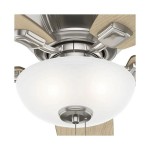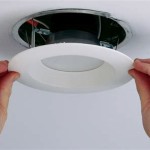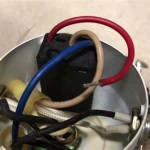Essential Aspects of Fluorescent Light Fittings for Suspended Ceilings
Fluorescent light fittings are a popular choice for suspended ceilings in various commercial and industrial settings. They offer energy efficiency, long lifespan, and versatility in lighting design. Understanding the essential aspects of these fittings is crucial for selecting the appropriate fixtures for your specific needs.
Types of Fluorescent Light Fittings
Fluorescent light fittings come in different types, each serving a different purpose:
- Linear Fittings: Long, rectangular fixtures that provide uniform lighting over a wide area.
- Troffer Fittings: Recessed fixtures that fit into suspended ceiling grids, providing downward lighting.
- Wall-Mounted Fittings: Fixtures mounted on walls, providing indirect or diffused lighting.
- Compact Fittings: Small, compact fixtures suitable for tight spaces or accent lighting.
Lamp Types and Color Temperature
Fluorescent light fittings accommodate various lamp types, including T5, T8, and T12 lamps. These lamps differ in size, wattage, and color temperature:
- Color Temperature: Measured in Kelvins (K), it refers to the warmth or coolness of the light emitted. Lower K values (2700K-3000K) produce warmer, yellowish light, while higher K values (4000K-6500K) produce cooler, bluish light.
Mounting Options
Fluorescent light fittings offer diverse mounting options to suit different suspended ceiling systems:
- Suspended Mount: Fittings suspended directly from the ceiling grid using cables or chains.
- Recessed Mount: Fittings installed within the ceiling grid, providing a flush or semi-flush appearance. li>Surface Mount: Fittings attached directly to the ceiling surface, providing a more industrial look.
Control Options
Fluorescent light fittings can incorporate various control options to adjust lighting levels and optimize energy consumption:
- Manual Controls: Basic on/off switches or dimmers.
- Motion Sensors: Turn lights on/off automatically based on movement detection.
- Occupancy Sensors: Detect presence or absence of occupants, adjusting lighting levels accordingly.
- Photocells: Adjust lighting levels based on ambient light, dimming or turning lights on/off.
Factors to Consider
When selecting fluorescent light fittings for suspended ceilings, consider the following factors:
- Purpose: Determine the intended use of the lighting, considering factors such as task complexity, visibility requirements, and aesthetics.
- Ceiling System: Identify the type of suspended ceiling system and select fittings compatible with its grid and mounting options.
- Lighting Level: Determine the required lighting level based on the activity performed in the space.
- Energy Efficiency: Consider the wattage and energy consumption of the fittings to optimize energy usage.
- Maintenance: Choose fittings with accessible components for easy maintenance and lamp replacement.
By understanding the essential aspects of fluorescent light fittings for suspended ceilings, you can make informed decisions to achieve optimal lighting performance and energy efficiency in your commercial or industrial space.

Suspended Ceiling Lighting Systems In Turkey Trio

Ceiling Mounted Lighting Synthesis Cooper And Safety Fluorescent Tube Office Suspended

Suspended Ceiling Fitting 80w 120w Pendent Led Tube Light China Linear Lighting Made In Com

Up And Down Suspended Linear Light Fixtures With Lgp Technology

Lighting Gallery Net Out About F28t5 Strip Light In A Suspended Ceiling Fluorescent Fixture

4ft Led Fluorescent Tube Light Fixture For Pendant Hanging Suspended Ceiling Mounted China Lighting Made In Com

Philips Maintained Grid Modular Suspended Ceiling Fluorescent Tube Light Fitting

Suspended Ceiling Skylight Ceilings Qld

Commercial Office Lighting Ideas What Are Your Options

Suspended Ceiling Light Diffusers Diffuser Specialist
Related Posts








